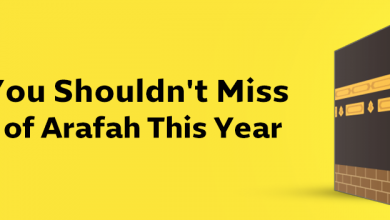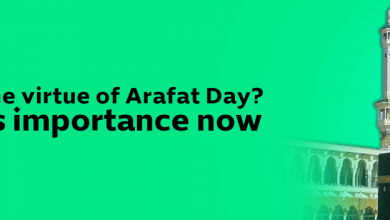Page Contents:
Ramadan is usually the happiest most spiritual and festive month of the year for Muslims. However, this year, a lot of things had to change about the holy month due to the strong restrictions and mandatory lockdown enforced in most countries around the world because of the Coronavirus pandemic which has almost paralyzed the entire planet.
While it is hard to get people to agree on anything, Ramadan and its rituals were one of the very few things all Muslims agreed on and shared, from fasting and praying together to breaking bread together at sunset.
However, to protect ourselves from this invisible enemy called the COVID-19 virus, a lot of us had to give up our rituals and tradition, for the sake of our own safety and the safety of our loved ones and the entire community.
So how different is Ramadan going to be without these rituals and how can we overcome this change and still manage to enjoy some of our favorite Ramadan things? Let’s find out together…
Fasting
During the holy month of Ramadan, Muslims all around the world come together and act as one unit. We all wake up before dawn to have Sohour, then fast until sunset when we have Iftar. Both of those meals are usually shared with family, friends, and loved ones, even those you haven’t met in ages, Ramadan usually manages to bring you closer together.
So how is it gonna be different this year?
Due to the outbreak of the coronavirus in over 185 countries, a lot of countries have advised their citizens to commit to social destining and avoid crowds of all kinds, including group Iftars and Sohours. Some countries have even closed all restaurants and cafes where people usually meet to have Iftar or Sohour together and banned all group Ramadan activities, even charity Iftars which are usually held a lot during the holy month.
So, Yes, you won’t find any Ramadan themed decorations and Bazaars while walking down the street anymore. You won’t be able to visit your relatives and friends and hug them in celebration of the holy month. And you won’t be able to fully feel the cozy spiritual vibes and atmosphere of your favorite month like you do each year. And yes this could be sad and quite frustrating.
However, we must always remind ourselves why we are doing this and how important it is to stick to these -fairy difficult- restrictions for our own sake, and for the sake of our community.
Will we get to pray together?
Salah al jama’ah in Mosques, especially al Tarawih has always been one of the major cornerstones of Ramadan. But this Ramadan, it is just one more thing we won’t be able to do seeing how a lot of countries have banned Salah al jama’ah and closed mosques temporarily due to the COVID-19 outbreak.
However, this doesn’t mean that we don’t get to enjoy Salah al jama’ah at all. We could still pray all five prayers and Al Tarawih at home with our family. Of course, it will be different from the mosque, but it will still be spiritual and heartwarming, it will get the family closer together closer as well as closer to GOD.
And if you are used to attending religious lectures in Mosques during Ramadan, you can also catch some lectures and lessons online on Facebook, Youtube, or through Zoom. It won’t be the same, nut you have to miss out on this beautiful habit.
How will we be able to help out the less fortunate?
Helping out the less fortunate is one of our main duties as Muslims all year long, but especially in Ramadan. Usually, free Iftar meals are handed out to the needy in groups or served to them in mosques or in Ramadan tents.
However, this year, it is different, like everything else. Due to the mandatory curfew and lockdown a lot of countries enforced, it has become undoable for most people to get personally involved in helping out the less fortunate, and even the means which said help was provided has become quite limited.
But luckily, you could still help out from home by donating online to charity organizations and NGOs who professionally organize and oversee all stages of providing help to those who need it, including gathering donations, packaging, storing, and distributing. This way, you’ll get to stay safe at home and help out at the same time.
How will we celebrate Eid Al-Fitr?
Eid Al-Fitr is one of the two biggest holidays we have and anticipate all year, and especially all Ramadan since it marks the end of the holy month.
During Eid Al-fitr, the streets are usually packed with people celebrating the holy holiday in different shapes and forms. From the break of dawn, prayers fill the mosques and surrounding streets for the Eid Prayer. Then throughout the three days of Eid, people spread out throughout their cities practicing their Eid festivities, leaving no place empty, from parks to restaurants, and from movie theaters to clubs.
Some people also use Eid Al-Fitr’s vacation to go on road trips, go back to their hometowns to be with their families, or visit their distant relatives and rekindle old bonds.
However, this year, there is a very big chance that we won’t be able to do that in case the coronavirus pandemic continues to spread across the globe. A lot of countries advised people to obtain from going back to their hometown for Eid vacation in order to reduce the risk of infection. Even the Mufti of the Kingdom of Saudi Arabia has stated that people might have to do the Eid prayer at home in case the COVID-19 outbreak continued to increase.
Seeing how we are still at the beginning of the holy month, no one can confirm anything for sure, all we have is just speculations and guesses based on the current situation, but we sure do hope this global nightmare is over before Eid Al-Fitr.
What should we as Muslims learn from this experience?
Just like any bad experience, this horrifying pandemic has a silver lining, actually more than one. And it is that we learned to be grateful to all the things we always took for granted and appreciate them for the gifts that they are, such as our health, the ability to go outside and go wherever we want, and the privilege of spending time with our families, friends, and loved ones without being scared.
This crisis has also taught us to have more compassion towards those in need, the less fortunate, the sick, and most of all, it gave us a newfound and long-overdue appreciation for medical workers and the unbelievable efforts the put into keeping us save and out of harm’s way.






